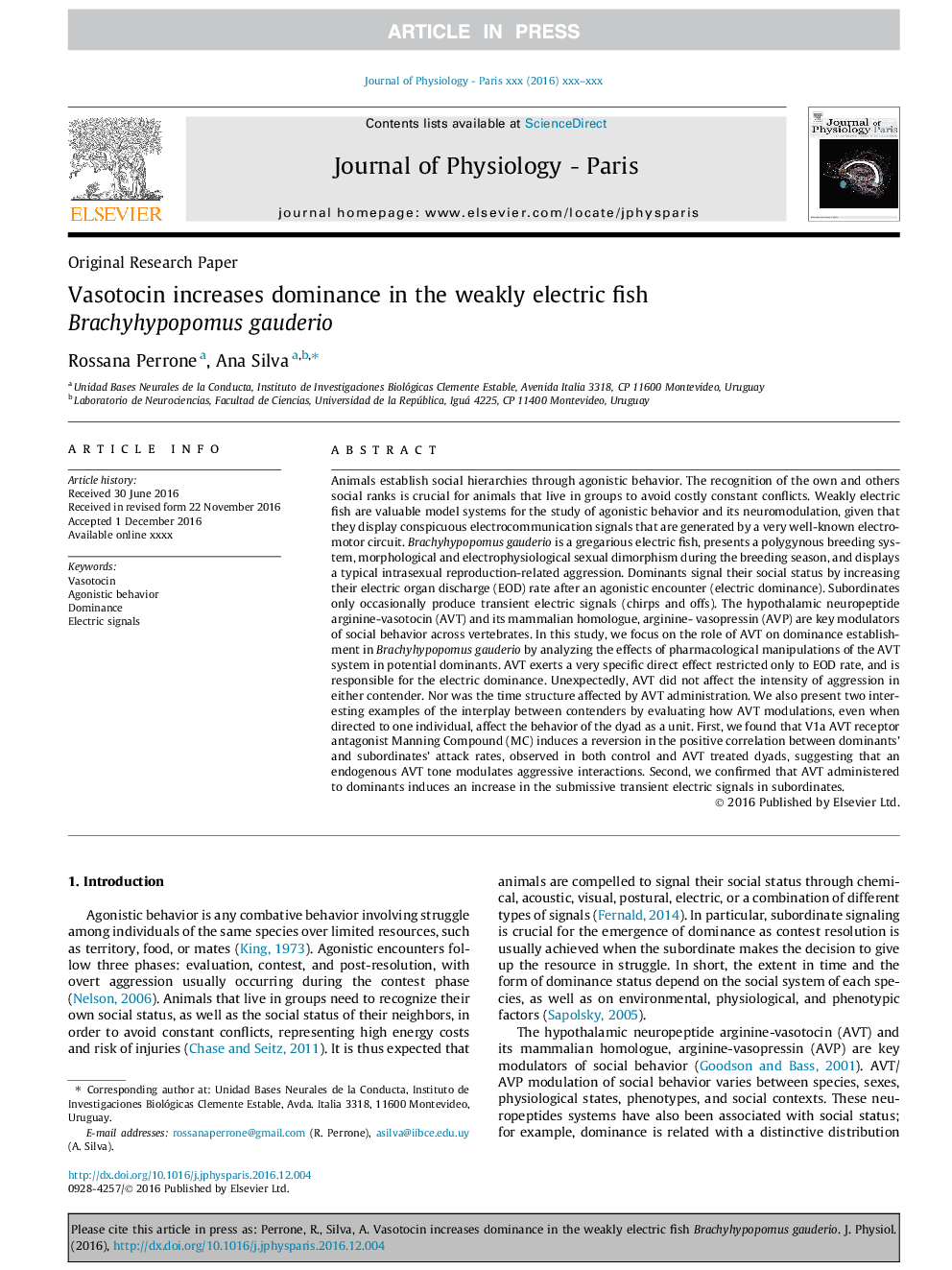| کد مقاله | کد نشریه | سال انتشار | مقاله انگلیسی | نسخه تمام متن |
|---|---|---|---|---|
| 5593308 | 1405076 | 2016 | 8 صفحه PDF | دانلود رایگان |
عنوان انگلیسی مقاله ISI
Vasotocin increases dominance in the weakly electric fish Brachyhypopomus gauderio
دانلود مقاله + سفارش ترجمه
دانلود مقاله ISI انگلیسی
رایگان برای ایرانیان
موضوعات مرتبط
علوم زیستی و بیوفناوری
بیوشیمی، ژنتیک و زیست شناسی مولکولی
فیزیولوژی
پیش نمایش صفحه اول مقاله

چکیده انگلیسی
Animals establish social hierarchies through agonistic behavior. The recognition of the own and others social ranks is crucial for animals that live in groups to avoid costly constant conflicts. Weakly electric fish are valuable model systems for the study of agonistic behavior and its neuromodulation, given that they display conspicuous electrocommunication signals that are generated by a very well-known electromotor circuit. Brachyhypopomus gauderio is a gregarious electric fish, presents a polygynous breeding system, morphological and electrophysiological sexual dimorphism during the breeding season, and displays a typical intrasexual reproduction-related aggression. Dominants signal their social status by increasing their electric organ discharge (EOD) rate after an agonistic encounter (electric dominance). Subordinates only occasionally produce transient electric signals (chirps and offs). The hypothalamic neuropeptide arginine-vasotocin (AVT) and its mammalian homologue, arginine- vasopressin (AVP) are key modulators of social behavior across vertebrates. In this study, we focus on the role of AVT on dominance establishment in Brachyhypopomus gauderio by analyzing the effects of pharmacological manipulations of the AVT system in potential dominants. AVT exerts a very specific direct effect restricted only to EOD rate, and is responsible for the electric dominance. Unexpectedly, AVT did not affect the intensity of aggression in either contender. Nor was the time structure affected by AVT administration. We also present two interesting examples of the interplay between contenders by evaluating how AVT modulations, even when directed to one individual, affect the behavior of the dyad as a unit. First, we found that V1a AVT receptor antagonist Manning Compound (MC) induces a reversion in the positive correlation between dominants' and subordinates' attack rates, observed in both control and AVT treated dyads, suggesting that an endogenous AVT tone modulates aggressive interactions. Second, we confirmed that AVT administered to dominants induces an increase in the submissive transient electric signals in subordinates.
ناشر
Database: Elsevier - ScienceDirect (ساینس دایرکت)
Journal: Journal of Physiology-Paris - Volume 110, Issue 3, Part A, October 2016, Pages 119-126
Journal: Journal of Physiology-Paris - Volume 110, Issue 3, Part A, October 2016, Pages 119-126
نویسندگان
Rossana Perrone, Ana Silva,